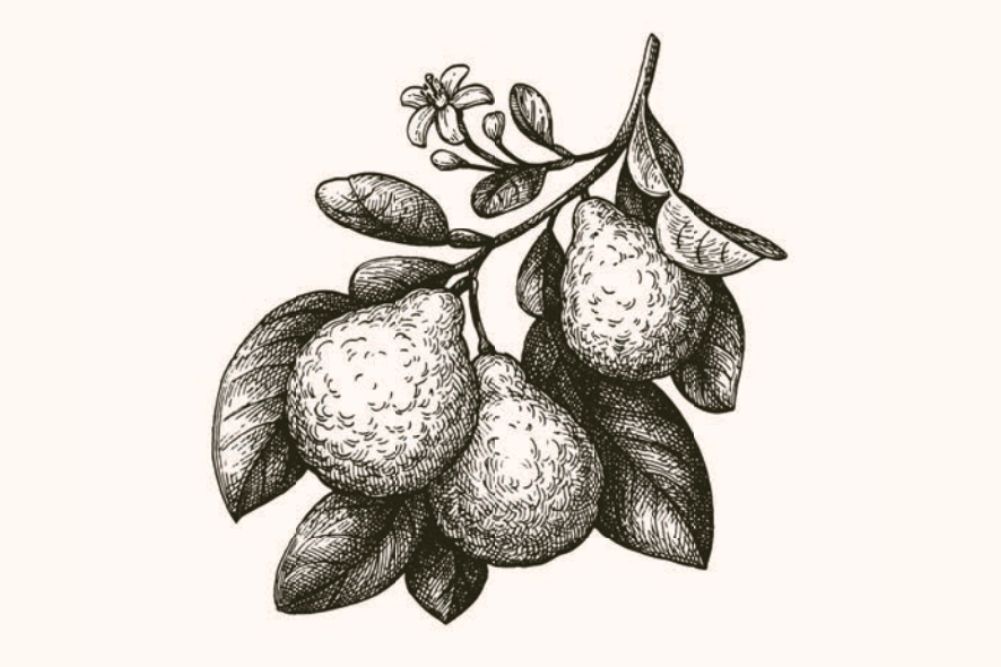Cloves and their clever effects
The human bond with cloves goes back across millennia. In fact, archaeologists have found clove buds in ceramic pots in Syria dating to around 1700 BCE.
Cloves (Syzygium aromaticum) are the dried aromatic flower buds of a tree in the myrtle family. The clove tree is an evergreen that grows to 12 metres, with large leaves and flowers grouped in clusters. The buds are harvested when they are about 2cm long.
Cloves are native to the Molucca islands of Indonesia and, in the 17th century, the Dutch East India Company attempted to gain a monopoly on the spice trade in cloves and nutmeg, but the cloves grew so prolifically on many islands in the Moluccas that they had difficulty policing it. These days, cloves are commercially harvested mainly in Indonesia, India, Sri Lanka, Madagascar and Pakistan and off the coast of Tanzania.
Active ingredients
The main active constituent in clove oil is eugenol (a phenolic compound). Eighty-five per cent of the taste of cloves comes from eugenol and it’s the component on which most of the pharmacological research is conducted. Cloves also contain beta- caryophyllene, subgroups of eugenol, kaempferol and tannins, vitamin C, boron, calcium, chromium, manganese, magnesium, potassium and flavonoids.
Effects in the body
Local anaesthetic, analgaesic & anti-inflammatory
Clove oil and clove bud powders have a long history of use in dental procedures. Eugenol is an effective local analgaesic and anti-inflammatory compound that acts on contact to inhibit the sensory receptors involved in pain perception. It also inhibits both COX-1 and COX-2 pathways of inflammation. The local anaesthetic effect is noticeable after about five minutes and lasts about 15 minutes.
Fungicidal, antibacterial, antiviral, antiparasitic
Clove oil has remarkable antifungal and antibacterial effects against a wide variety of organisms. Oral intake has shown antifungal activity against Candida albicans in animal research, as it appears to affect the organism’s envelope. Antibacterial activity has been demonstrated against a variety of gram-positive and gram-negative anaerobic periodontal pathogenic organisms. Oral intake of clove (as a tea) has also inhibited the well-known Helicobacter pylori, the organism noted for its ability to cause gastric ulceration.
Antioxidant
Clove flowers have measurable levels of antioxidant components.
Antidiabetic
There have been several animal and in-vitro studies demonstrating hypoglycaemic activity for cloves. The active ingredient is a phenolic compound that controls manufacture of glucose in the liver. Even commercial culinary cloves inhibit fructose-mediated protein glycation, indicating a useful role in diabetes.
Digestive system
Cloves are considered warming and stimulating, particularly in the digestive system where they relieve wind and boating (carminative) as well as kill worms. Use the spice in food for these actions. Powdered clove buds can also be drunk as a tea. As cloves are warming, they are used in Chinese medicine for diseases of cold and are not recommended in Ayurvedic medicine for pitta fire, ie not to be given with flare-ups of inflammatory autoimmune disease.
Others
Cloves have also been used to reduce muscle spasm and relieve respiratory infections.
Therapeutic effects
Toothaches & relief of dry socket pain
Clove is applied directly to the gums (used topically) for toothache. Both dried clove buds and clove oil have been shown to be effective to relieve dental pain and reduce infection. The German Commission E has approved clove oil for use as a local anaesthetic and antiseptic. Powdered clove buds or clove oil are commonly used in dentistry worldwide. Clove oil has been compared to benzocaine and was found to be an effective replacement as a local anaesthetic.
Herpes simplex (HSV) 1
There have been several studies to indicate the effectiveness of clove oil against herpes simplex virus 1 (cold sores). It has been shown to be more effective than acyclovir (a common antiviral medication for cold sores) alone.
Type 2 diabetes
In a small study, 36 people with type-2 diabetes were given varying doses of clove powder in capsules for 30 days. The results showed lowered serum glucose, triglycerides, total cholesterol and LDL cholesterol. The effect lasted longer than 10 days after the medication ceased. Further research is needed.
Digestion
Clove oil is used for diarrhoea and bad breath. Cloves and clove oil are used for intestinal gas, nausea and vomiting and diarrhoea.
Anti-inflammatory
Clove oil is also applied to the skin as a counter-irritant for pain and for mouth and throat inflammation.
Consuming cloves
Cloves have been used for centuries as food preservatives and as a flavouring in food preparation. Powdered cloves can be drunk as a tea. With toothache or gum inflammation, clove oil is applied directly to the site. Internally, the oil can be taken at 0.05–0.2mL as a single dose; these are tiny amounts and you should talk with a practitioner before taking the oil internally. For headaches, massage one drop of the oil into the painful area or on the temples.
Contraindications & side-effects
There are no known contraindications, although safety in pregnancy is unknown at therapeutic levels. Contact dermatitis has been reported and topical applications may produce local irritation of the mucous membrane. There are generally very few side-effects when used topically. Ingestion of excess quantities of the oil may trigger depression, seizures and liver dysfunction. These reactions don’t happen when used topically. Cloves are considered safe consumed in food as a spice.








